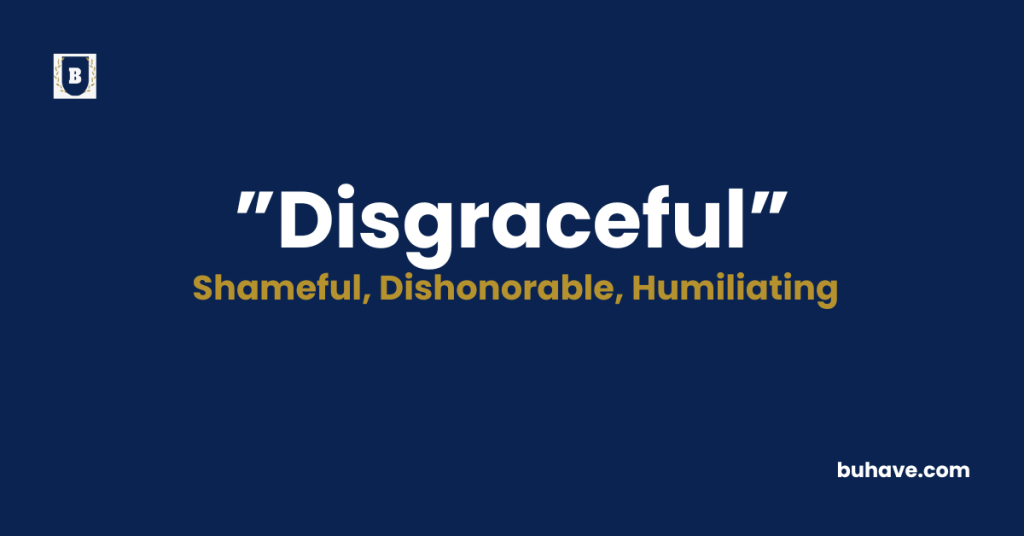The word Disgraceful (adjective) describes something that causes shame, dishonor, or embarrassment because it is considered morally wrong, unacceptable, or deeply improper. In this guide, you’ll learn the full definition, synonyms, antonyms, etymology, and real-life examples of how to use Disgraceful correctly in sentences.
Disgraceful Explained in Depth
A complete and detailed guide to the word Disgraceful including meaning, definition, examples, etymology, synonyms, and antonyms.
Meanings of Disgraceful
Disgraceful means bringing or deserving shame, dishonor, or strong disapproval due to bad behavior or offensive conduct.
Definition
Disgraceful refers to something that is shockingly unacceptable or immoral, often causing others to feel disappointed or ashamed.
Etymology
The word disgraceful comes from the noun “disgrace,” which traces back to Old French desgracier meaning “to put out of favor,” and from Latin dis- (apart) + gratia (favor, esteem). The suffix “-ful” adds the meaning of being full of disgrace.
Example Sentences
- The politician’s behavior was disgraceful and shocked the entire community.
- It’s disgraceful how the company treated its loyal employees.
- Cheating in the final exam was a disgraceful act that led to expulsion.
Disgraceful Synonyms
- Shameful
- Dishonorable
- Scandalous
- Outrageous
- Reprehensible
- Deplorable
- Unethical
- Appalling
- Humiliating
- Discreditable
Disgraceful Antonyms
- Honorable
- Praiseworthy
- Respectable
- Admirable
- Commendable
- Upright
- Decent
- Dignified
- Noble
- Creditworthy
FAQs about Disgraceful
Here are some FAQs (Frequently Asked Questions) about the word “Disgraceful”
1. What does “disgraceful” mean?
It means something that is shameful, morally wrong, or unacceptable, causing dishonor or embarrassment.
2. Is “disgraceful” always negative?
Yes, it always conveys strong disapproval or condemnation.
3. Can “disgraceful” describe behavior and events?
Yes, it can describe both someone’s actions and incidents that bring shame or dishonor.
4. Is “disgraceful” a formal word?
It is commonly used in both formal and informal contexts when expressing strong disapproval.
5. How is “disgraceful” different from “shameful”?
Both are similar, but “disgraceful” may emphasize a public loss of respect or reputation, while “shameful” focuses more on internal guilt or embarrassment.

















